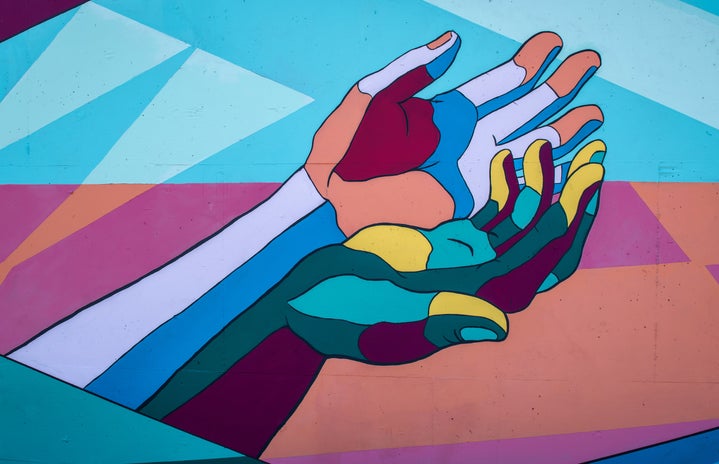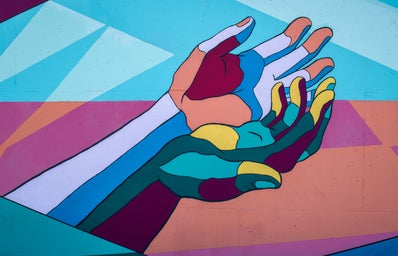For as long as I can remember, my hands have felt unusually cold. It all started in middle school, when people would point out my hands’ low temperature as soon as they touched themーnot to mention the uncomfortable tingling feeling that would flood my fingers as I typed away in the freezing air conditioning of my school’s computer lab. Shortly after, I woke up one morning to an especially acute numbness in my single index finger, which, due to lack of proper blood circulation, was half white. The next time I had an episode like this, it included two fingers at a time. Feeling an intense mix of fear and shock, I visited a doctor’s office, where I was presented with a possible cause: a circulatory illness. Several studies, blood tests, and a visit to the rheumatologist later confirmed I not only had juvenile rheumatoid arthritis, but also Raynaud’s Syndrome; something I had never heard of at the time.
The Mayo Clinic defines Raynaud’s Syndrome as a chronic condition that causes some areas of the body, mainly fingers, and toes, to feel numb as a response to cold temperatures or stress. Curiously, and as is the case with most autoimmune diseases, its causes are unknown. What is known, however, is that there are two types: primary Raynaud’s, which occurs among people living in cold environments (living in Puerto Rico, this option was highly unlikely), and secondary Raynaud’s, which accompanies one or more underlying conditions. At the time, it was a lot of information to take in. I was overwhelmed by the role Raynaud’s Syndrome would have in my life, as I quickly learned it wouldn’t go away.
Meanwhile, Raynaud’s got stronger and more debilitating. I would experience episodes constantly, many of them triggered by anxiety and stress. As a musician, I feared the numbness in my fingers, but eventually got used to the uncomfortable feeling of nothingness as I warmed up in rehearsals. Although clumsy at first, my fingers would work up to speed if kept warm enough. Luckily, there were some measures I could take to keep things under control. I was advised not to touch cold surfaces directly, and to always keep a pair of gloves with me. My dreams of having a part-time job at an ice cream shop may have been shattered, but at least I now had a growing collection of gloves.
My relationship with gloves was a strange one, considering I’d often get weird looks and sarcastic remarks when I used them in public. After all, who would even need gloves in the Caribbean’s warm temperatures? To people who did not know about Raynaud’s (virtually everyone except the few friends and family I trusted enough to tell), I was simply exaggerating. Every obvious question (Why are you wearing gloves?) would be met with a simple: “Because I’m cold”. Even so, wearing gloves in public felt awkward and embarrassing, and there were many times when I foolishly preferred to freeze my hands off instead of drawing attention to my gloved hands.
Eight years later, I rarely leave my house without carrying at least one pair of gloves. I’ll still get the occasional stare, but time made me realize that sacrificing your health for the sake of others’ opinions is a huge mistake (not to mention, gloves can be a fashion statement). Since my diagnosis, life hasn’t been the same, but routine checkups, lab orders, medications, and gloves simply became a part of my life, as autoimmune disorders can change over time. For two summers in high school, I participated in a summer camp for autoimmune patients, where I made several friends who I still keep in touch with. This allowed me to not just learn about other conditions besides my own, but to bond with and create supportive relationships with people experiencing similar struggles.
As difficult as it may be sometimes, Raynaud’s has taught me a lot. While most of the time I’ll joke about my fragile “grandma hands”, the truth is I value them more than ever and am grateful for everything they allow me to do: whether it’s writing, playing instruments, gaming, or doing makeup. Both Raynaud’s and arthritis helped me learn that I have to be patient with my body and actively watch out for it. More importantly, I’ve also been taught a lesson in optimism: to find positive angles in tough situations. Cold hands can be a huge inconvenience, but it’s always sweet to have them held. That being said, I may experience intense moments with a lot of pain, but I can take the necessary steps to control my symptoms and lead a healthy life.


